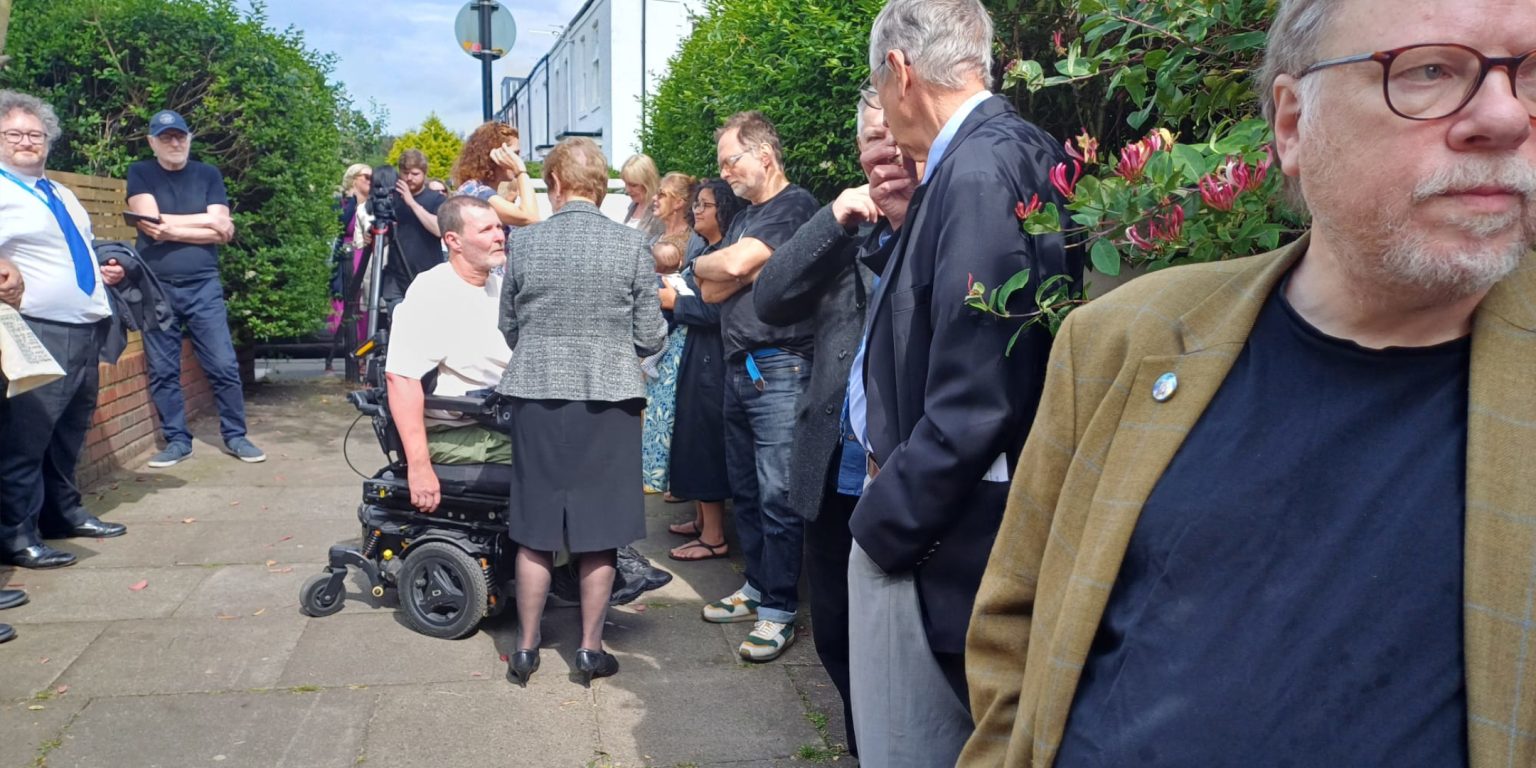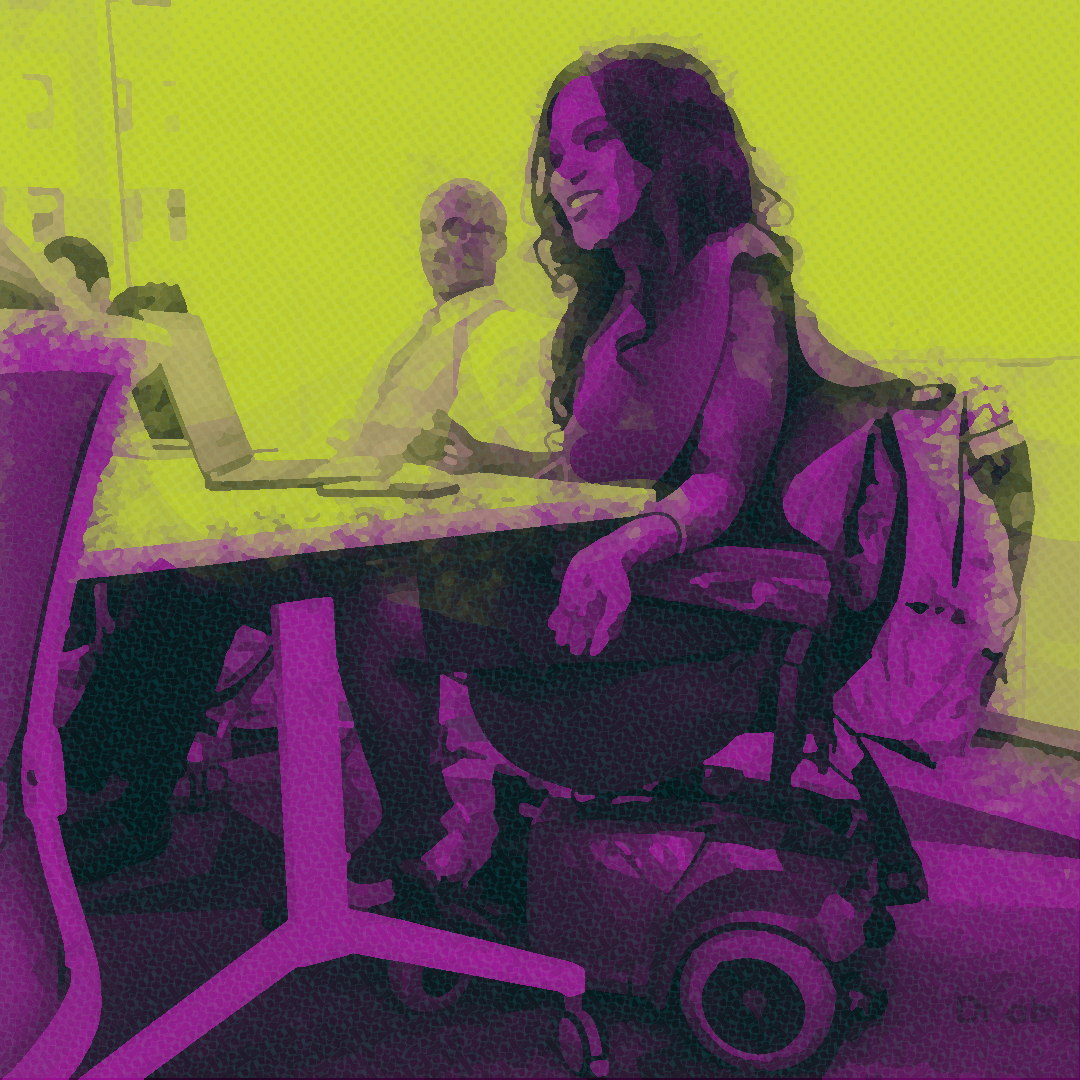Silenced is how we felt at the celebration! Read why we could not ignore this!
Reflections From Blue Plaque Unveiling
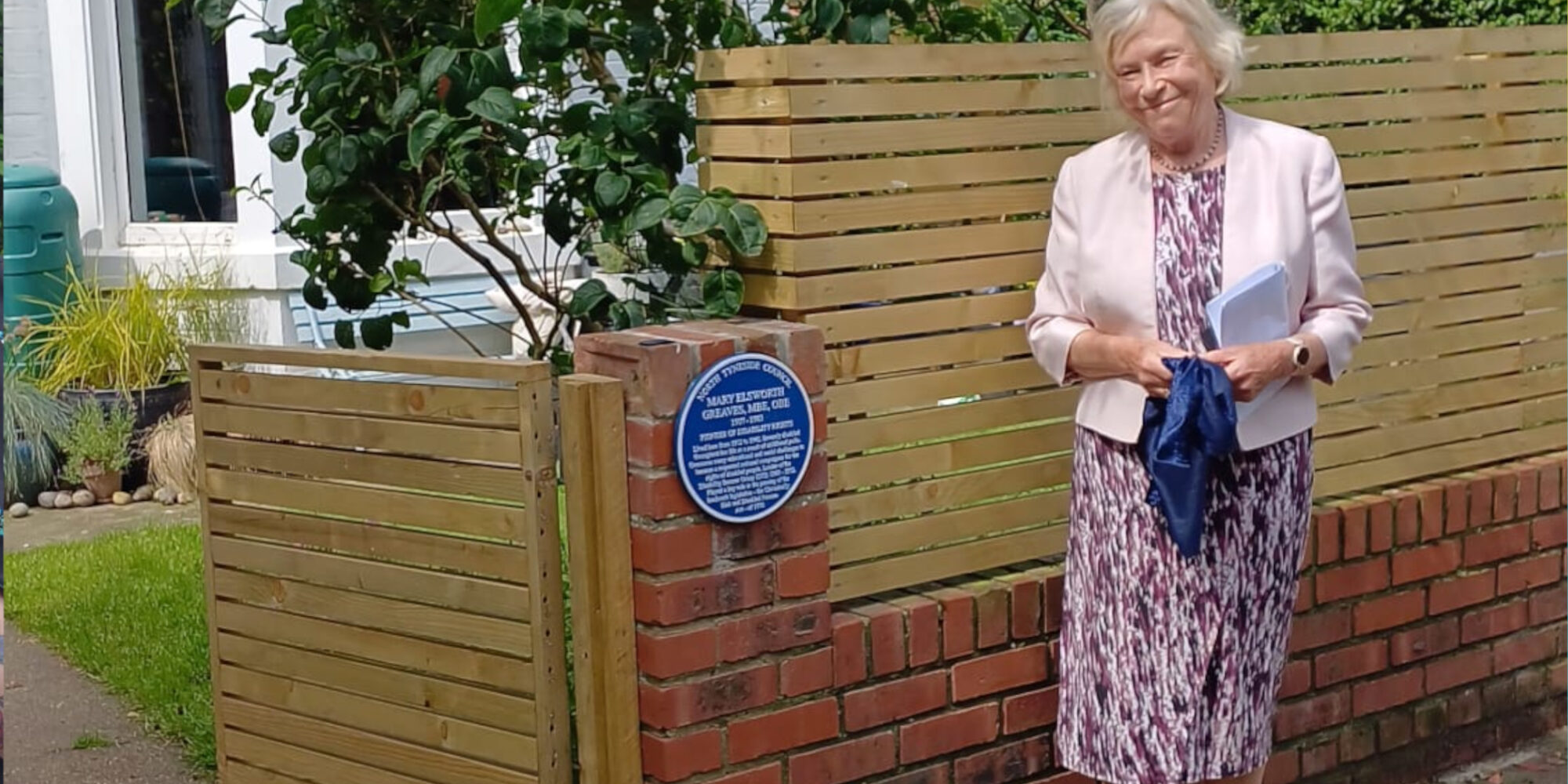
This reflective piece comes from a small group of disabled activists in the northeast of England who attended the unveiling of a commemorative plaque to Mary Greaves. On a pedestrian walkway in front of a Victorian terrace on a sunny day in July, a group of people made up of an author who identified Mary for her book on noteworthy women from the northeast, a relative of Mary’s who investigated the family genealogy, a handful of council staff, the mayor, journalists, residents, councillors and about 15 other onlookers. These are our reflections on the occasion, in the spirit of northeastern disabled activists.
Mary Greaves: an impressive legacy
Firstly, Mary Greaves, we honour you. You were the first visible and known [in some quarters] disabled person in modern Britain who altered our laws to make our society a fairer place. Your work improved lives for disabled people through, among other things, the passing of a law which ensured local authorities made their services available for everybody. She worked in pursuit of:
- Accessibility and making sure disabled people could access public spaces, housing and transport
- Education which was inclusive and provided opportunities for all.
- Employment which was non-discriminatory and fair.
- Awareness raising for people and professionals about disability related issues.
- Legislative changes which would embed all of these in law.
We celebrate your work, which sought to give disabled people access to all the things nondisabled people had access to. You fought for equality and fairness first from your bedroom and then from the Houses of Parliament, by being the voice of disabled people.
The Language of Disability Rights
Mary predated the social model of disability, which we are sure she would have fully supported based on the work that she has done and her legacy. Indeed, one of the slogans of the disabled people’s movement is nothing about us without us, which Mary would have certainly advocated.
However and unfortunately, the text used to commemorate her disability rights’ activities does not seem to be written, or even been shown, to any disabled people before it was erected. Indeed, it uses ableist language, describing her as severely disabled. Within disability politics, we would not use such a term because we believe it is not our impairments which disable us, rather the barriers experienced in society. If anything, all disabled people are severely disabled.
Mary, I am sorry that it uses language that contributes to creating a world that you campaigned against. It is unfortunate that this transpired but even more unfortunate is that it continues all the time, people doing things related to and ‘for’ disabled people without the involvement of disabled people; the opposite of our slogan. Similarly, in the spoken presentations at the unveiling, there were references made by non-disabled orators, to a better world of accessible transport and housing for disabled people. As a disabled individual, I am still unable to use a Metro in Newcastle, get a taxi when I want one and get on buses if they have children’s buggies. This severely disables my ability to travel. The lack of successful housing, where one wheelchair accessible house is built for every 120 disabled people in the North East also severely disabled us.
At the unveiling, we [our four Difference representatives] were the only [obvious] disabled people among the 20 or so people in attendance. Without us, as uninvited guests, it would have been non-disabled talking to non-disabled about something designed by non-disabled as a testimony to a disabled person who fought for the rights of disabled people, and we felt, had got it wrong.
Are We Spoiling It?
People are celebrating a resident and family member, why are we disrupting things? Well, if the references to disability rights were not there, then neither would we, as the next generation of freedom fighters as it were. And we have to say something. If we did not, it would be like referring to a feminist activist as a “lady” … it continues the language of oppression and perpetuates the status quo, which is something that Mary campaigned against.
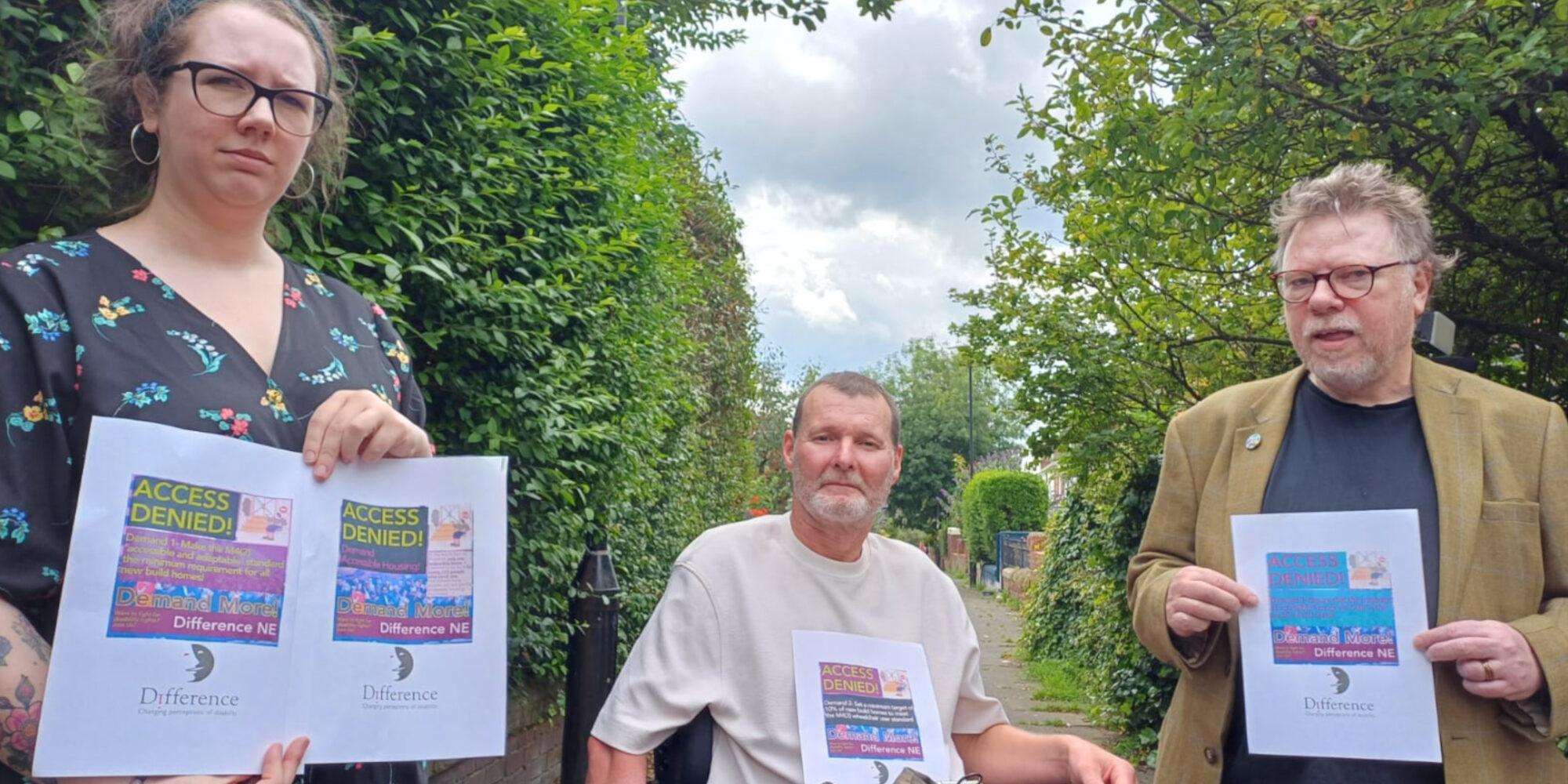
Immediately after the unveiling, we wanted to use the opportunity to draw attention to an upcoming national disability campaign about the lack of accessible housing, something Mary would have fully supported. What better way to honour activism by being active. Unfortunately, we were prevented by a senior council representative who said in a confrontational way ‘We don’t want any of that’ when we got out or accessible housing campaign posters. She continued to admonish us after we politely stepped aside. At that point the tone changed, when they felt the disabled people were spoiling it.
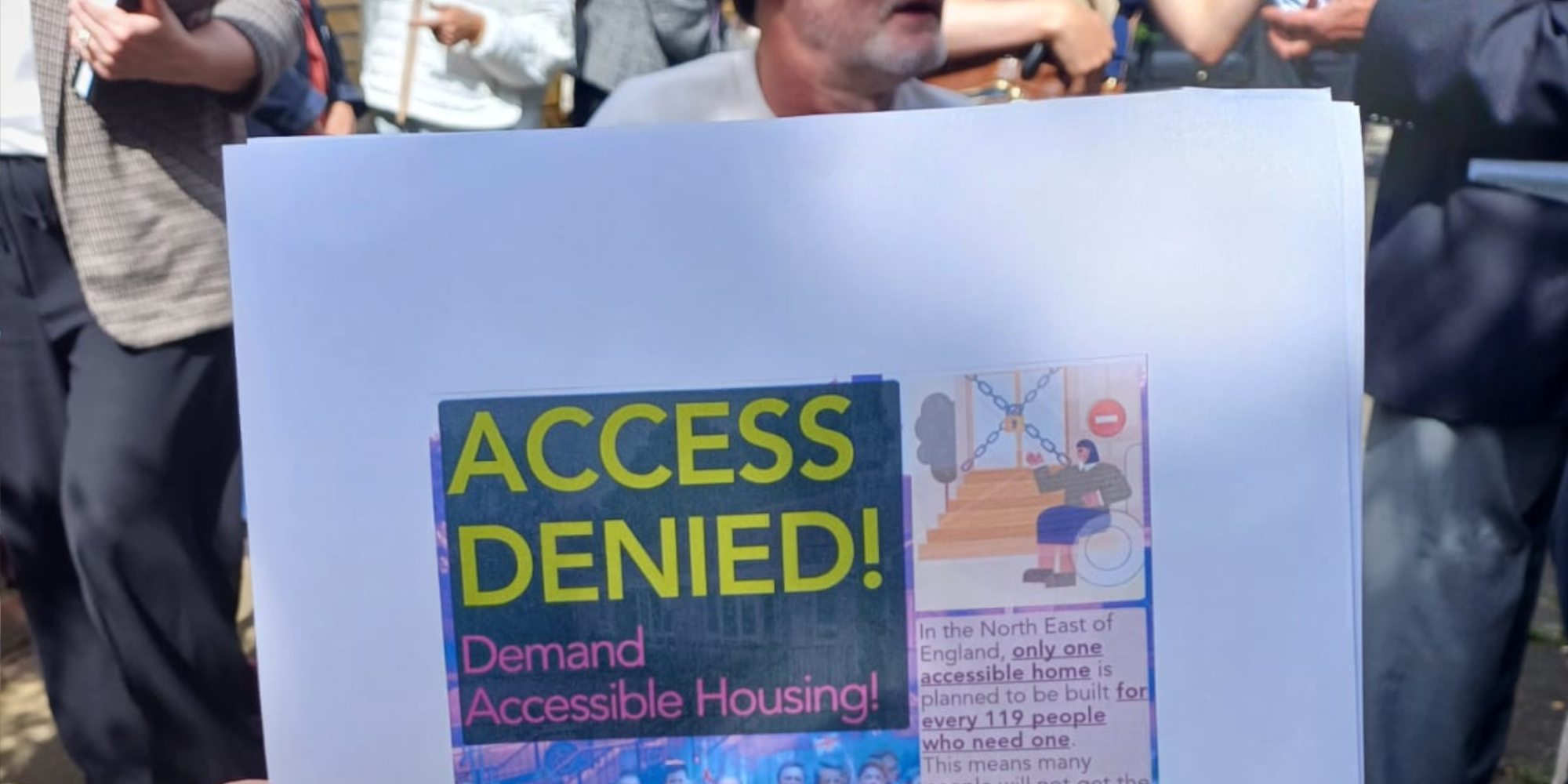
Then we did a radio and TV interview, with the local press. This year we have already worked with BBC to look at positive reporting of disabled people, but unfortunately this was ITV, and we haven’t done anything with them. The Tyne Tees television piece was edited to make one of us appear as an Uncle Tom character praising brave disabled people, but we were able to talk about structural barriers to inclusion. But I must say that I failed to mention that these barriers are all under pinned by not being consulted, not being invited and when we did say something, attempted to be silenced.
Our Testimony
Here’s what we would have said on our purple [our adopted colour] plaque:
Mary fought tirelessly for the rights of disabled people and was instrumental in passing the first disability rights law in Britain. Living with impairments as a result of childhood polio, and using a wheelchair, she encountered barriers everywhere which she felt she could help dismantle for the benefit of others. She was the leader of the Disablement Income Group 1969–1972 that pushed through The Chronically Sick and Disabled Persons Act 1970, the first piece of legislation which acted to protect and support disabled people in this country.
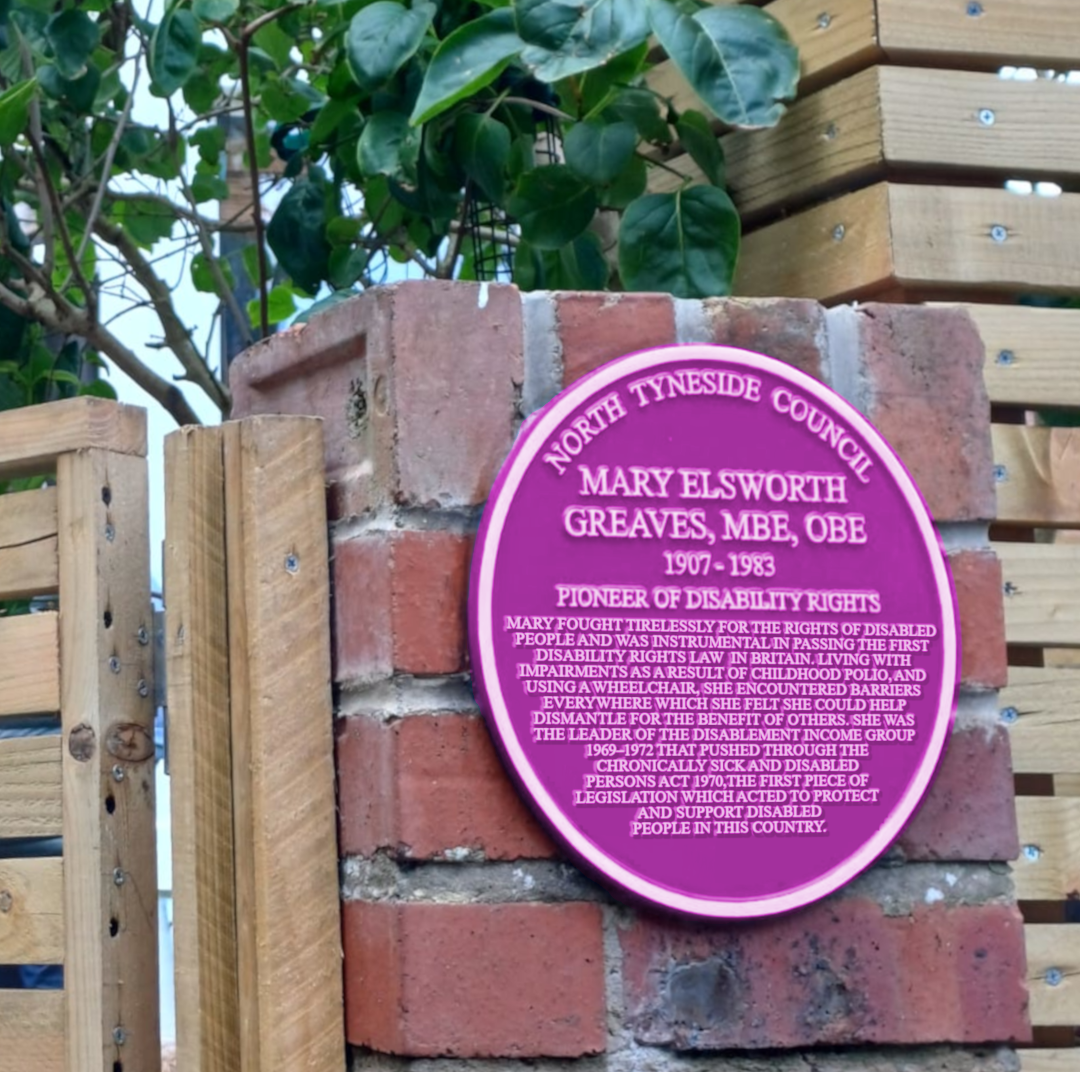
We remember you, Mary, and we will carry on your work and continue to disrupt and be a nuisance.
Read about the #AccessDenied campaign here – where we are demanding more accessible housing to combat the disability housing crisis
Do you want to fight for disability rights in the northeast of England? Join us here!

